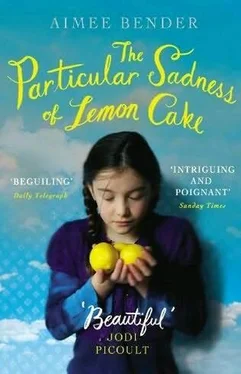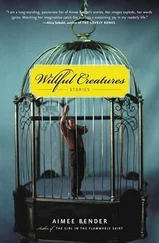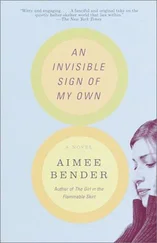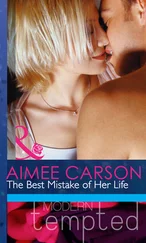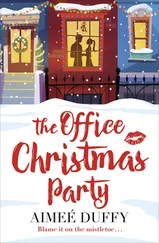Was he sick?
Oh, you know, Dad said. The strap.
What strap?
I’ve told you about the strap, he said.
No, I said. I peered closer. The piece of white cloth looked like it wrapped over the lower half of my grandfather’s face and tucked up and away from his mouth.
I used to tell him it looked like he was wearing underwear on his face, Dad said, shaking his head.
For allergies? I said.
I really never told you this?
What?
That he could smell people?
He could what? I said.
You sure?
I coughed, lightly. Um, yes, I said. Very sure.
He touched the photo with gentle fingertips.
My dad, Dad said, would walk into a store and take a whiff and he could tell a lot about whoever was in the store with that whiff. Who was happy, who was unhappy, who was sick, the works. Swear to God. He used to wear that thing on his nose, outside-my dad! Walking down Michigan Avenue with that thing on his face, to get himself a break.
He hit the photo page, as if he couldn’t believe there was a photo at all.
He was a good man, Dad said, such a good man. Truly generous. But can you imagine, going shopping with the guy? Once, I told him I didn’t want to be seen with him, got locked in my room for two days.
Outside, tree branches rustled in the wind. My throat tightened.
Never said such a thing again, Dad said.
Did he say what he smelled? I asked, very softly.
Pain, he said. He shrugged.
I loved the guy, he said, sitting back. Just loved him, but best when he was not wearing the strap.
I pulled the album closer. Looked at Grandpa, his eyes dark and serious above the cloth. Kind-faced Grandma. Little five-year-old Dad, wearing a bow tie.
He died at fifty-four, said Dad. Smelled death on himself, then he died.
He traced a finger around the square photo outlines.
I can do that, I said.
Do what?
I smoothed down the page, as if to push it all in.
You can smell people? Dad said.
With food, I said.
You can taste people?
Yeah, I said, not looking at him. Kind of.
He stared at me. No kidding, he said. You never told me that. Is it bad?
I laughed a little. It can be bad, I said.
Dad closed his eyes, rubbed his eyebrows. Huh, he said. Pop hated it too sometimes, he said, remembering. Hated it but also met some good people-we went into Sears one time and he took off the strap to sneeze and caught a whiff of this great guy, just a gem. Irv. Sweetest man, family friend for years. You can taste people? You mean you have to bite a person?
I smiled, down at the page. No, I said. I taste it in the food they make. Whoever cooks the food, like that.
He nodded, though his eyes were still shut and crinkled with puzzlement. He seemed to be churning through various permutations and skipping over a whole range of possible questions.
What a family, he said.
I returned to the photos, for something to do. Tiny Dad, wearing that little polka-dotted bow tie, his hands spread out to the sky.
Cute, I said.
He craned over to see himself. Ach, that tie, he said.
Together, we stared at that polka-dotted tie as if it was the most interesting clothing item in the world.
You know, I have no special skills, he said.
I remember, I said.
He sealed his mouth a little. Nothing like you or Pop, he said.
I turned the page.
I just have this hunch, he said. You know, I saw what it did, over years-that strap! Would you walk around town with a strap on your face all day?
He picked at his sleeve. Dad on Grandpa’s shoulders, trying to pluck a plum from the branches of a tree. Smiley little Dad, on a swing.
What’s the hunch? I asked.
Just, I imagine, he said, crossing his arms. That I might be able to do something in a hospital. I don’t know what. It’s too much, right? That if I went into a hospital something might come up, some skill. That’s all. Better not to find out, that’s what I say. Keep it simple! Keep things easy!
I didn’t move. Held myself very still.
What do you mean, something would come up ? I said, slowing down my words.
Just, I could do something special, he said. In a hospital.
He pushed his lips together. The moon slipped down into the frame of the window and reached an arm of pure light through the glass.
You have no idea what it is? I said.
Not a clue, he said, evenly.
And it’s just a hunch?
Just a pull feeling I get, he said, shifting his seat on the chair. When I see a hospital. A feeling like I should go in. In, in, in.
I dug my hands into the hem of the armrest. My father, out of nowhere, taking shape.
And have you ever? Gone in? I said.
Nah, he said.
Never?
Not interested, he said. I spent time with a sick neighbor once and that was enough for me.
Did he get better?
She was going to get better anyway, Dad said, tapping a hand against his arm.
But did you help her?
I highly doubt it, he said. She was taking a lot of medicine.
I grabbed his hand. Well, let’s go! I said. Let’s test it-it’s late, so it won’t be crowded, and I’ll be with you every second, okay? What do you think? This could be great news! I mean, it might help, right? It might be useful information, for the world.
His body grew heavier, gained inertia, the more I pulled.
No, he said. I’m sorry, Rose. I saw what it did to my father. I’m not going in.
But I’ll stay right with you, I said, pleading. We’ll go in side by side, every second. It’s only a test. I won’t ever leave your side.
I tugged on his arm, harder.
What if it’s amazing? I said.
No, he said. Thank you, but no. His eyes drifted up to mine, stones. He patted my hand and gently extricated his arm from my fingers. His height, still heavying into the seat.
But maybe it could help me , I said.
He frowned. I don’t see how, he said. Food and hospitals are not the same.
He looked back down at the open book, to steady himself. In a long emphatic staredown with his baby self. I had to hold myself back from shoving him out of his chair. I wanted to push him in, somehow. To dump him in there, with a crane. To force. It seemed so unbelievably luxurious to me, that he had the option, that he could drive different routes, sit in his seat, thinking, pondering, never know, never have to find out.
Yours is all in the same place, I said, a little helplessly.
And?
I ruffled the weave of the chair arm.
Lucky, I said.
He tightened his lips, and the word lucky bounced around us, the wrong word, meaning nothing.
Rose, he said, flatly. I couldn’t even go in to see your brother, he said.
And with that, his face locked back into itself.
It was true; when Joseph had been checked into the hospital, Dad had stood outside the electric doors for over an hour, trying to take a step forward. Trying, and trying. I had walked by, on my way to go in. He’d kept a book in his hand to read, so that people passing by would think he had something to do.
You didn’t know that was the last time, I said, in a low voice.
But even if I had, Dad said.
For a while, we sat together with the nighttime, undernoted by the distant sound of cars slowing and accelerating, driving the lanes of Santa Monica Boulevard, Saturday night. Moonlight pierced the window. I thought about that trip to the ER, so many years ago, and the doctors standing above, telling me I could not remove my mouth.
I sank my head down on the armrest. I guess if mine were all in one place, I said, I might do the same thing.
He put a hand on my arm. His palm, cool.
Gotta eat, right? he said.
Right, I said.
And just as he said it, like a bird across the sky, my brother flickered through my mind, and although the thought was half formed, it occurred to me that meals were still meals, food still contained with a set beginning and end, and I could pick and choose what I could eat and what I couldn’t. And that my father’s was a hospital he could drive around entirely, and Grandpa seemed to smell mostly in stores, but what if whatever Joseph had felt every day had no shape like that? Had no way to be avoided or modified? Was constant?
Читать дальше
